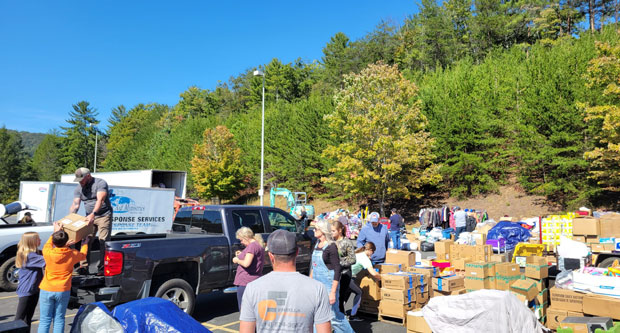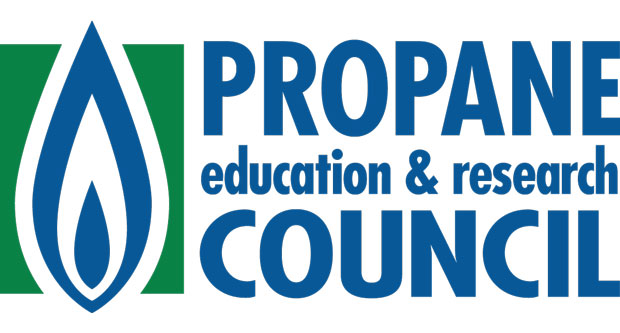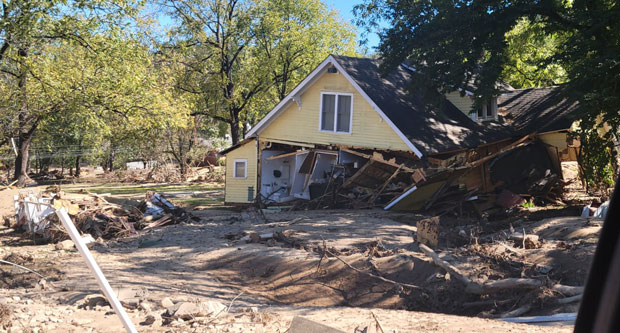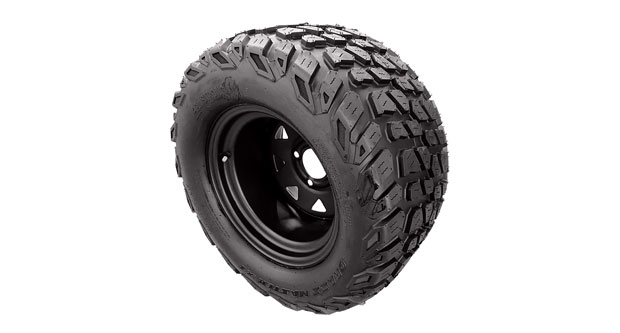Exmark is gearing up to celebrate its three decades of business and its Lazer Z commercial zero-turn mower. Since its debut in 1995, the Lazer Z has become a staple in the professional-grade mowing scene, according to the company.
As part of this milestone, Exmark released a new video that dives deep into the legacy of the Lazer Z.
Exmark vice president Daryn Walters said the Lazer Z’s mid-mount design, which places the cutting deck between the front caster wheels and rear drive wheels, was a game-changer.
“Our customers told us what they needed. Increased cut quality and maneuverability, faster mowing and maximum long-term durability with less maintenance were at the top of their list,” Walters said. “Armed with this knowledge, we had the roadmap, so we started testing, refining, retesting and finally, once the Lazer Z was ready, we released it to the world.”

When launched in 1995, the Lazer Z was available in one configuration with a 60-inch cutting deck. As the needs of its customers have evolved, Exmark has grown the Lazer Z line to include five series and a wide range of power and size options, from 48- to 144-inches in cut width.
The company said it is rewarding to look back on its legacy with the Lazer Z, but Walters said he’s more excited about the innovations coming in the 2025 Lazer Z line.
“Exmark is a company built on innovation, and we’re always taking the feedback of our customers to drive our future innovations,” Walters said. “Each model in the 2025 Lazer Z line reflects the needs of its users, with the features they want and the value proposition they seek.”
Exmark unveiled its 2025 Lazer Z line, including three new redesigned series, at the 2024 Equip Expo show in Louisville, Ky.
Frisella Landscape Group volunteers to help hurricane victims
In the wake of the devastation caused by Hurricanes Milton and Helene, Frisella Landscape Group traveled to North Carolina to assist with relief efforts. The team brought supplies and provided support to communities devastated in the aftermath of the storms.
“What motivated us was hearing about the destruction and knowing that we have the ability and resources to help,” said Tony Frisella, Sr., founder of Frisella Landscape Group. “It’s fulfilling to use our skills in a way that makes a meaningful difference for those in need.”
Frisella’s team focused their efforts on the hardest-hit areas of Black Mountain, Chimney Rock and Lake Lure, where they used chainsaws to remove trees for churches and people trapped in their homes. They also transported supplies between distribution centers, including a major hub at Lake Lure.

The group also secured a donated fireworks tent and two donated semi-trailers for much-needed storage to add to the generous donations of clothing, diapers and more that had been pouring in from across the country. They erected the tent and purchased plywood and two-by-fours that were constructed into shelving.
Frisella Landscape Group worked directly with the Cajun Navy, a volunteer emergency response group that was established after Hurricane Katrina, and interacted with the United States Army. In the end, the experience helped Frisella, Sr. note the personal impact of their work.
“It’s difficult to describe the feeling you get when you help people in dire need,” he said. “We met many people who had lost everything and didn’t know what their next steps would be. We hugged them, prayed with them and gave them what they needed to get by for the time being.”
Linxup and RoadFlex launch new product to eliminate fuel fraud
Linxup and RoadFlex, two technology providers of fleet management solutions for landscaping companies, unveiled a product integration to provide landscape companies with improved levels of visibility and control regarding employee fuel charges.
This new integration between Linxup and RoadFlex aims to allow business owners and managers to monitor fuel card usage, validate fuel expenses and halt fraudulent activity in real-time. Fuel is one of the biggest expenses for landscaping companies, and according to the company, fuel fraud and theft are significant contributors to operating costs for landscaping businesses nationwide. For small landscaping businesses, fuel fraud and theft can account for several thousand dollars of waste. For mid-to-large-sized operations, thousands of dollars can be lost.
“At Linxup, we’ve always been focused on helping our customers get more value out of their vehicles and crews,” said Linxup CEO Drew Reynolds. “This partnership between Linxup and RoadFlex will give business owners and managers even more visibility and control when it comes to how their money is spent.”
By combining Linxup and RoadFlex, owners and managers will see the following benefits:
Block fraudulent transactions vehicle location tracking: Eliminate the fear of drivers filling up their personal vehicles or a buddy’s vehicle. Through Linxup, RoadFlex pulls vehicle location data to confirm the location at the time of a gas fill-up. If the vehicle is not present or too far away, RoadFlex automatically declines the transactions to prevent fraud.
Monitor fuel levels in real-time: RoadFlex grants the ability to accurately track fill ups in a vehicle by pulling the vehicle odometer readings at the time of purchase. This verifies that fuel was pumped into the correct vehicle, while ensuring transactions do not exceed a vehicle’s fuel tank capacity.
Sync vehicle data between Linxup and RoadFlex: RoadFlex automatically imports vehicles from Linxup into the RoadFlex Platform to maintain a matching list of vehicles within both platforms.
This integration also automates fleet expense management and fuel oversight from data collection to reporting. By using the Linxup and RoadFlex integrated solutions, businesses can streamline fleet operations through advanced fuel risk management, savings automation, and real-time vehicle analytics.
“Connected fleet operations are more important than ever,” said Dennis Chang, CEO of RoadFlex. “The key is to leverage real-time vehicle and purchase data to enable intelligent decision-making for automation, fleet reporting, and advanced analytics. This helps all facets of a business, from streamlining accounting/finance to automating vehicle operations and optimizing fuel usage.”
The RoadFlex platform also offers fleet managers full visibility into every transaction, with customizable spending controls tailored to employees and job titles. For instance, a trucking fleet manager could set category-specific spending limits for drivers, ensuring they only make authorized purchases. If a driver tries to make an unauthorized transaction, it is automatically blocked, and the fleet manager receives an instant alert.
This integrated solution also verifies fuel purchases by linking transactions to the correct employee and vehicle. Suspicious transactions are flagged in real time for review. By leveraging real-time telematics and detailed fuel data, the system blocks purchases that exceed a vehicle’s fuel tank capacity or involve the wrong fuel type. This process helps fleet managers stay in control and prevent costly fuel fraud.
The Propane Education and Research Council commemorated Clean Energy Month
The Propane Education and Research Council (PERC) commemorated Clean Energy Month for this October. As the month unfolds, PERC is highlighting the pivotal role propane plays in advancing a cleaner, more sustainable future. As the nation works toward decarbonization, propane can be used as a solution for homes and businesses to reduce emissions as a low-carbon energy source.
“Propane is a key player in creating a sustainable energy future,” said Michael Newland, director of agriculture business development at PERC. “There is no single path to decarbonization, but propane’s low emissions profile, reliability and affordability make it an excellent choice — especially in locations where electrification may not yet be convenient.”
As the demand for reliable energy sources grows, the need for alternatives to diesel-powered generators has also increased, especially in regions prone to severe weather and electric grid disturbances. Propane can reduce nitrogen oxides (NOx) and particulate matter emissions, significantly improving air quality in areas where diesel has exacerbated pollution concerns.
Propane is also an excellent option for businesses looking to replace gasoline-powered mowers. Unlike gasoline, propane eliminates the risk of spills that harm grass and contaminate soil, offering both environmental and operational benefits. In addition, propane-fueled mowers reduce greenhouse gas emissions by 17 percent and allow operators to meet stricter local air quality regulations, according to the council.

Renewable propane also takes it a step further without compromising performance or affordability. Derived from renewable feedstocks such as vegetable oil, animal fats and used cooking oil, renewable propane offers a carbon intensity score between 20.5 and 43.5 grams of CO2 equivalent per megajoule compared to more than 100 for diesel and gasoline, according to the council.
PERC encourages businesses, professionals, and industry leaders to look for opportunities to utilize propane for a more sustainable future. By 2050, renewable propane could meet half the world’s demand for non-chemical propane, further cementing its role as a critical contributor to emissions reductions across multiple sectors.


